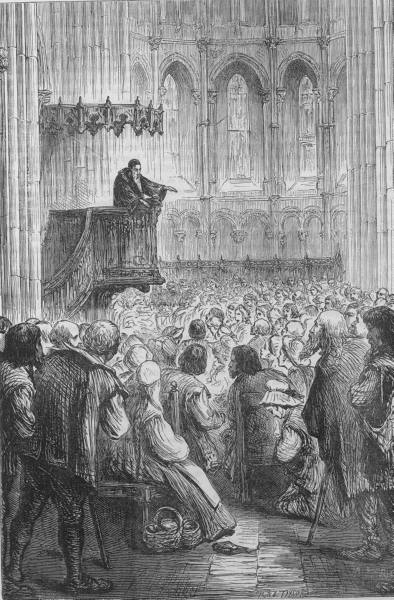You can check it out here.
Sunday, September 27, 2009
4 Quick Questions and 1 Strange One...
Alison has been interviewed by our friend Jeremy about her work and the demographics of Sydney.
The day Thou gavest...
 The day Thou gavest, Lord, is ended,
The day Thou gavest, Lord, is ended,The darkness falls at Thy behest;
To Thee our morning hymns ascended,
Thy praise shall sanctify our rest.
We thank Thee that Thy church, unsleeping,
While earth rolls onward into light,
Through all the world her watch is keeping,
And rests not now by day or night.
As o’er each continent and island
The dawn leads on another day,
The voice of prayer is never silent,
Nor dies the strain of praise away.
The sun that bids us rest is waking
Our brethren ’neath the western sky,
And hour by hour fresh lips are making
Thy wondrous doings heard on high.
So be it, Lord; Thy throne shall never,
Like earth’s proud empires, pass away:
Thy kingdom stands, and grows forever,
Till all Thy creatures own Thy sway.
I heard this hymn quoted in a talk by Glenn Davies last night on the central coast. It does its time: the sun never sets on the British empire church. But I think it carries a lovely sense of the whole church and that somewhere on earth prayer and praise is always ascending to God.
Monday, September 21, 2009
The Problem With Preaching IV
 The Value of Oral Communication
The Value of Oral CommunicationHaving laid out some of the problems facing preaching in church, it would be tempting to just do away with it. The common lament I hear is preaching is dry, boring and painful. And with the rise of the internet and the massive social changes that come with it, maybe preaching has had it's day.
However, being a good Anglican, I want to suggest that the way forward is the via media. I want to find some middle ground. I don't think we need to stop preaching. Instead, we need to preach better, we need to 'preach smarter'. It was encouraging to read Peter Adam describe John Calvin's preaching. Adam goes on to argue that it was Calvin's sermons rather than The Institutes and the Commentaries that were his most significant contribution: "[I]t was more through his preaching than through any other aspect of his work that he exercised the extraordinary influence everyone has acknowledged him to have had" (R.S. Wallace).
Calvin helped create a powerful pattern of vernacular expository preaching. His aim was to let God have his say, to project God's eloquence, to help the congregation to hear the voice of God. Calvin's sermons, heard in Geneva, written down, published, translated and published again, helped to reform Europe. We need to recover the health and vigour of engaged and lively expository preaching for the maturity and usefulness of the people of God, for the conversion of the world, for God's glory. We have much to learn from Calvin's preaching. - Peter Adam, "'Preaching of a Lively Kind' - Calvin's Engaged Expository Preaching", Engaging With Calvin, ed. M Thompson, IVP 2009.If we want to preach better, or "preach smarter", then we need to recover the health and vigour of engaged and lively expository preaching for the maturity and usefulness of the people of God, for the conversion of the world, for God's glory. Preaching can be powerful when it is done well. Speech is powerful. Calvin's sermons transformed not just one city, but large swathes of a continent. Sure, the sixteenth century was a far more oral society than at the start of the twenty-first century.
But even today a good speech can move people. We've seen that in the past year with Barak Obama's election to the American Presidency. Never before had an election campaign harnassed the power of the internet. Facebook, YouTube, Twitter. You name it, Obama was on it. But it was the power of speech that captured a nation's imagination. Let us consider what this wordsmith has to offer us regarding preaching...
Holy, Holy, Holy...
I'm feeling pretty tired as I write this. Our congregation just had it's weekend away down at Gerringong. It was a great time of fellowship, rest and community. Michael Jensen also gave three outstanding talks on God: The one-ness of God; The Pleasure of God; and The Wisdom of God. If it ever makes it into a book, it will be a great follow-up to YOU: An Introduction.
On the trip home we had the ipod on surprise (also known as shuffle. This is fairly normal for Alison and me). The best part was when Sufjan Steven's version of Holy, Holy, Holy came on. What a treat!
On the trip home we had the ipod on surprise (also known as shuffle. This is fairly normal for Alison and me). The best part was when Sufjan Steven's version of Holy, Holy, Holy came on. What a treat!
Monday, September 07, 2009
Where's the Coverage?
 I attended the the John Saunders Lecture in August where Dr Peter Adam discussed Aboriginal land claims, the history of injustice against Indigenous Australians, and appropriate Christian responses including the question of recompense. I followed the resulting media coverage with interest (including the SMH, The Age, and Melbourne Anglicans).
I attended the the John Saunders Lecture in August where Dr Peter Adam discussed Aboriginal land claims, the history of injustice against Indigenous Australians, and appropriate Christian responses including the question of recompense. I followed the resulting media coverage with interest (including the SMH, The Age, and Melbourne Anglicans).And so I was somewhat disturbed and surprised by the relative lack of coverage of the lecture in the Sydney Anglican media. Besides this quick mention in Russell Powell's weekly column and 26 words in September Southern Cross (see the picture), the lecture might well never of happened.
Despite Southern Cross reporting the lecture under the Anglican Communion Wrap: Melbourne, this landmark lecture actually took place in Sydney. I was there, along with several members of the Moore College Faculty.
Although the lecture was organized by Morling College and the Baptist Union of NSW & ACT, it had several Anglican connections. Peter Adam is Anglican, and the principal of an important Anglican theological college. The Aboriginal elder who helped organize the evening is an Anglican from Queensland. Several members of the Sydney Diocese Indigenous committee and Social Issues Executive where present. I think on the night that mention was made of support the lecture had received from the Sydney Diocese. And a collection was taken at the end of the night to fund indigenous theological training through the Baptist and Anglican churches. I thought that all this would make the lecture worth reporting in September's Southern Cross (particularity given page two caries a feature article on the bicentenary of William Cowper's arrival in Australia).
What really disturbs me is that the lecture received national coverage across the media spectrum and yet it has been virtually ignored in the Sydney Anglican mouthpiece. Peter Adam offered a Christian call for recompense that received national attention and we (Sydney Anglicanism) failed to engage with it. I know Sydney Anglican Media are facing major staff reductions, but I expected more from them. The 2009 John Saunders Lecture was of significant interest to Sydney Anglicans, and I'm disappointed that it wasn't reported to them.
Thursday, September 03, 2009
Pomo V
 Last time we established the golden trilogy of popular postmodernism: authenticity, community and justice.
Last time we established the golden trilogy of popular postmodernism: authenticity, community and justice.Authenticity
Like Christianity, postmodernism challenged the dangerous arrogance of the modernist worldview in imagining that human reason was supreme (the authority of the mind). Instead of authority, the ideal of authenticity should be pursued. It is the pursuit of identity and the search for self. It is life lived authentically to who you really are. According to Michael Jensen, people "want to live according to the truth of themselves as beings. This longing is partly in response to a sense that cultural conditions - technology, urbanisation, mass immigration - have made discovery of authenticity in life much harder, because our freedom has been so restricted."
It is in the respect that pomo can be described as relativist. What is authentic for me may be totally divergent to what is authentic for you, but that is OK in postmodernism as long as we're being 'true to ourselves.' There are issues with this (which I'll come back to later), but it is a response to so much in modern life that is manufactured and carefully spun (think of our politicians or the advertising industry). You'll find this value reflected in many new social mediums, particularly YouTube. The success in YouTube is that the content is real; the videos are not manufactured. Via YouTube I can show the authentic me to the whole world.
The ideal of authenticity is something that the church must come to terms with so that it can go forward in it's life and mission. What is up for grabs is the question of identity. Whilst postmodernism has raised this question, it doesn't provide easy answers. Michael Jensen has in fact observed several paradoxes in postmodern identity amongst 'Gen Y': biology vs dignity (am I just another animal, or do I have a special place as a human); narcissism vs self-loathing; self-discovery vs self-disappearance (the Internet allows us to disappear, to be anonymous); individualism vs. loneliness (the desire to be on or own can be seen in the growth of one bedroom flats. But it also comes at a time when people are more disconnected than ever before); consumption vs labour (Gen Y is relatively prosperous, and buys what it wants when they want to. They are also working longer hours than ever before); freedom vs intolerance (of moral choices); choice vs change anxiety; tradition vs. novelty (old is cool, sometimes. But so is the latest product from Apple); and global vs local.
With these tensions, pomo is still trying to answer the question 'Who am I?'. The church has exciting opportunity to articulate that my identity is found in Christ. The quest to find 'self' is achieved in denying ourselves and following Jesus: "If anyone would come after me, let him deny himself and take up his cross and follow me. For whoever would save his life will lose it, but whoever loses his life for my sake and the gospel's will save it." He is the authentic human and what he offers to those who would come after him is human life that is recovered (from evil and sin) and renewed. What he offers his disciples is the only way to know thy self.
Subscribe to:
Posts (Atom)